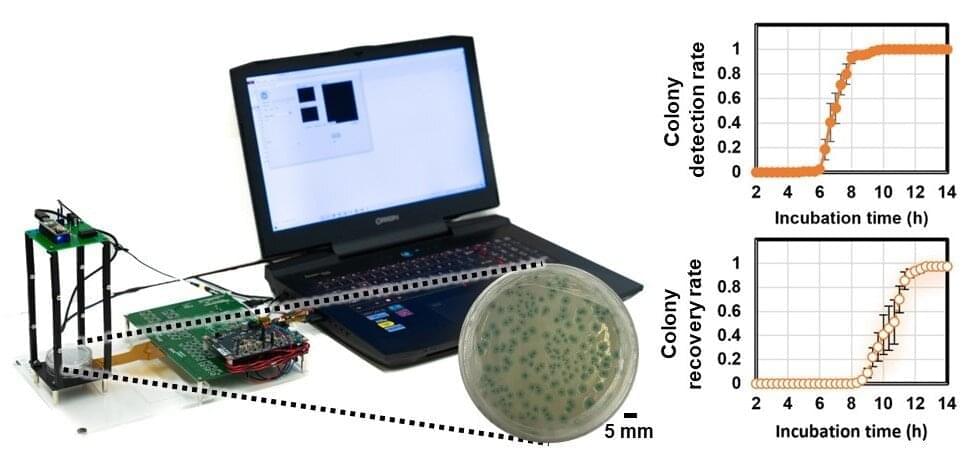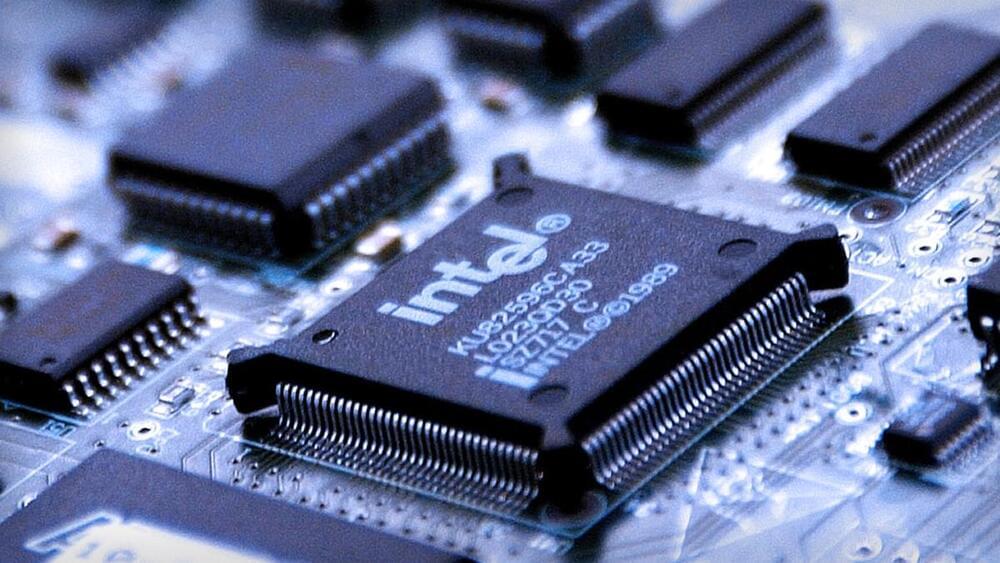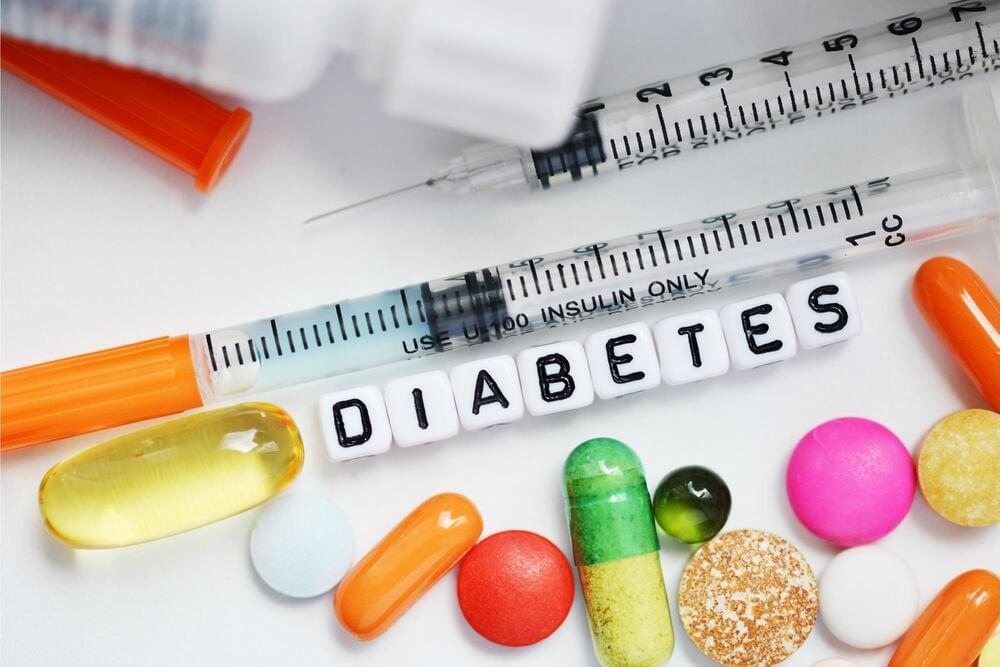Peanut Allergies – Why They Are a Thing and What to do About Them.
Research from Australia produces remission in peanut allergy through targeting Th2 cells to create antibodies to turn off the immune response.


Join us on Patreon!
https://www.patreon.com/MichaelLustgartenPhD
Bristle Discount Link:
ConquerAging15
https://www.bmq30trk.com/4FL3LK/GTSC3/
Cronometer Discount Link:
https://shareasale.com/r.cfm?b=1390137&u=3266601&m=61121&urllink=&afftrack=
You can support the channel by buying me a coffee!
https://www.buymeacoffee.com/mlhnrca.
Papers referenced in the video:
Interconnections Between the Oral and Gut Microbiomes: Reversal of Microbial Dysbiosis and the Balance Between Systemic Health and Disease https://pubmed.ncbi.nlm.nih.gov/33652903/
A Brief Introduction to Oral Diseases: Caries, Periodontal Disease, and Oral Cancer.

Early detection and identification of pathogenic bacteria in food and water samples are essential to public health. Bacterial infections cause millions of deaths worldwide and bring a heavy economic burden, costing more than 4 billion dollars annually in the United States alone. Among pathogenic bacteria, Escherichia coli (E. coli) and other coliform bacteria are among the most common ones, and they indicate fecal contamination in food and water samples. The most conventional and frequently used method for detecting these bacteria involves culturing of the samples, which usually takes 24 hours for the final read-out and needs expert visual examination. Although some methods based on, for example, the amplification of nucleic acids, can reduce the detection time to a few hours, they cannot differentiate live and dead bacteria and present low sensitivity at low concentrations of bacteria. That is why the U.S. Environmental Protection Agency (EPA) approves no nucleic acid-based bacteria sensing method for screening water samples.
In an article recently published in ACS Photonics, a journal of the American Chemical Society (ACS), a team of scientists, led by Professor Aydogan Ozcan from the Electrical and Computer Engineering Department at the University of California, Los Angeles (UCLA), and co-workers have developed an AI-powered smart bacterial colony detection system using a thin-film transistor (TFT) array, which is a widely used technology in mobile phones and other displays.
The ultra-large imaging area of the TFT array (27 mm × 26 mm) manufactured by researchers at Japan Display Inc. enabled the system to rapidly capture the growth patterns of bacterial colonies without the need for scanning, which significantly simplified both the hardware and software design. This system achieved ~12-hour time savings compared to gold-standard culture-based methods approved by EPA. By analyzing the microscopic images captured by the TFT array as a function of time, the AI-based system could rapidly and automatically detect colony growth with a deep neural network. Following the detection of each colony, a second neural network is used to classify the bacteria species.
Hibernation Biology & Applications In Human Health & Resilience — Dr. Dana K. Merriman, Ph.D., Distinguished Professor Emerita of Biology; Director of the Squirrel Colony, UW-Oshkosh.
Dr. Dana K. Merriman Ph.D. (www.uwosh.edu/facstaff/merriman/VaughanHome), is Distinguished Professor Emerita of Biology, and Director of the Squirrel Colony, at University of Wisconsin Oshkosh, and Adjunct Professor of Ophthalmology & Visual Sciences, Medical College of Wisconsin.
With her BA in Biological Science and her PhD in Physiology and Cell Biology, both from University of California-Santa Barbara, as well as having spent time as a Postdoctoral Fellow at University of Utah Health Sciences Center, a core focus of Dr. Merriman’s laboratory research over the years has been the development of a captive breeding colony of the 13-lined ground squirrels.
This unique, one-of-a-kind captive breeding program, due to this species very unique cone-dominant, diurnal visual system, as well as their impressive physiological ability to survive in hibernation for over six months without food or water, has served investigators with animals and custom-dissected tissues from the US, Asia, and Europe for decades, as well as been core to Dr Merriman’s own work on vision, including cone cell biology and retinal function during the metabolic state transitions associated with hibernation.
Over the years, Dr. Merriman expanded her research horizon well outside of vision, into neuroscience, and in recent years she has collaborated on studies of muscle physiology, viral genomics, molecular biology of transposable elements, and comparative genetics of the control of coat patterning.

Intel ((INTC) — Get Intel Corporation Report ) is the bearer of additional bad news.
The chip giant will give an extra blow to consumers and businesses concerned about the health of the economy. For several weeks in fact, consumers have seen their bills for groceries and other products increase. The price of gasoline at the pump has jumped when they go to fill up their car.
And the situation is not getting any better since inflation remains at its highest for forty years, which should push the Federal Reserve to be even more aggressive in raising rates. However, economists have already warned that this monetary policy would plunge the economy into recession.

Several traditional medicines commonly used in South Asia, are effective in maintaining blood sugar levels in patients with type 2 diabetes, according to a new study led by experts at the University of Nottingham.
Many South Asian countries, including India and Nepal, have been using the Ayurvedic natural medical system for thousands of years. Some of the herbs included in this traditional medical system are also used in other parts of the world including Iran, China, and Mexico – to name a few.
It features a multi-pronged and individualized approach to managing health conditions that can include lifestyle modification (including diet), Ayurvedic detoxifying and purifying therapies (e.g. Panchakarma), and Ayurvedic medicines (containing plant, animal, or mineral-origin ingredients – single or in combination).
Surveillance, Preparedness & Health Security In Critical Disease Emergencies — Dr. Rosamund Lewis, MD, Head, WHO Smallpox Secretariat, Technical Lead for Monkeypox.
Dr. Rosamund Lewis, MD, is Head, WHO Smallpox Secretariat, Emerging Diseases and Zoonoses Unit, World Health Emergencies Programme, at the World Health Organization in Geneva, Switzerland, leading on emergency preparedness and advising on health security for the agency in this very critical domain, including as technical lead for Monkeypox. She also holds an appointment as Adjunct Professor in the School of Epidemiology and Public Health, University of Ottawa.
Previous to this role, Dr. Lewis joined the WHO COVID-19 response team as the health sciences lead for management of infodemics.
A public health physician with an early career in family and emergency medicine, Dr. Lewis has served the WHO, the Government of Canada, Ottawa Public Health and other agencies at global, national and municipal levels in emergency preparedness, health security, disease surveillance and response, offering country support for a range of immunization and disease control programs.
Dr. Lewis has served other roles focused on field epidemiology in emergency settings with organizations like Doctors Without Borders, and new vaccines and health systems development with the Global Vaccine Alliance (GAVI).
Reimagining Nuclear Medicine — Dr. Stephen Moran, Ph.D., Global Program Head, Neuroendocrine Tumors & Other Radiosensitive Cancers, Advanced Accelerator Applications, Novartis
Dr. Stephen Moran, Ph.D., is Global Program Head, Neuroendocrine Tumors & Other Radiosensitive Cancers, for Advanced Accelerator Applications (AAA — https://www.adacap.com/), a Novartis company and also a member of the Oncology Development Unit Leadership Team at Novartis.
Prior to joining AAA, Dr. Moran was Global Head of Novartis Strategy, where he played a key role in defining the company’s strategy, prioritizing critical actions needed to deliver on the mission to discover new ways to extend and improve peoples’ lives. He also led numerous strategic initiatives, including gene therapy (AveXis, now Novartis Gene Therapies), RNA therapeutics (The Medicines Company), precision medicine and digital strategies.
Dr. Moran joined Novartis as Strategic Assistant to the CEO, a position he held for two years and prior to this, he was an associate principal at McKinsey & Company serving as a leader in the healthcare practice, where he focused on health system sustainability, research and development strategy, and the economic analysis of clinical interventions across disease pathways.
Dr. Moran holds a Bachelor of Arts and a Master of Science in Biochemistry from the University of Cambridge in the United Kingdom, including an undergraduate exchange program at the Massachusetts Institute of Technology (MIT). He also received a Doctorate from the University of Oxford in Biophysics where he lectured on thermodynamics, quantum mechanics and electromagnetism as applied to biology.

Researchers at the University of California, Davis, have been able to produce antibodies to the SARS-CoV-2 spike protein in hen eggs. Antibodies harvested from eggs might be used to treat COVID-19 or as a preventative measure for people exposed to the disease. The work was published July 9 in the journal Viruses.
“The beauty of the system is that you can produce a lot of antibodies in birds,” said Rodrigo Gallardo, professor in poultry medicine, Department of Population Health and Reproduction at the UC Davis School of Veterinary Medicine. “In addition to a low cost to produce these antibodies in hens, they can be updated very fast by using updated antigens to hyperimmunize hens, allowing protection against current variant strains.”
Birds produce a type of antibody called IgY, comparable to IgG in humans and other mammals. IgY does not cause allergy or set off immune reactions when injected into humans. IgY appears both in birds’ serum and in their eggs. As a hen lays about 300 eggs a year, you can get a lot of IgY, Gallardo said.